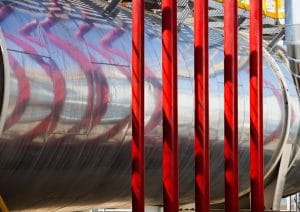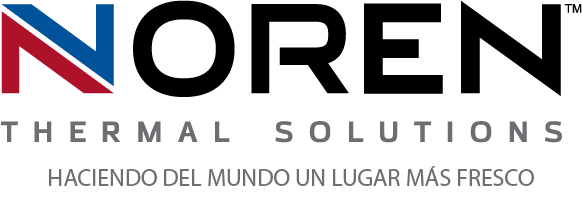 How companies benefit from the use of more advanced electrical systems depends on several different factors. At a minimum, companies can reduce the costs and maintenance needs of their electrical cooling processes by utilizing heat exchangers to keep electrical enclosures properly cooled. However, as the use of more streamlined cooling systems has grown increasingly more prominent in most industries, the benefits that come with them have also had a more profound impact for many companies. This can include making it possible to implement and take advantage of more advanced technologies, such as automated solutions, and turning electrical waste heat into a useful resource for certain processes.
How companies benefit from the use of more advanced electrical systems depends on several different factors. At a minimum, companies can reduce the costs and maintenance needs of their electrical cooling processes by utilizing heat exchangers to keep electrical enclosures properly cooled. However, as the use of more streamlined cooling systems has grown increasingly more prominent in most industries, the benefits that come with them have also had a more profound impact for many companies. This can include making it possible to implement and take advantage of more advanced technologies, such as automated solutions, and turning electrical waste heat into a useful resource for certain processes.
Making thermal management nearly automated
Automated technologies have become a significant investment for companies in most industries, and their use can span a wide range of applications. However, for automated systems to be a viable investment, companies need a way to effectively manage the systems’ electrical thermal management needs. With older cooling solutions, such as air conditioning and air compression, the need for frequent maintenance and repairs, along with typically high energy consumption, can often make them insufficient for cooling automated systems. However, many automated technologies rely instead on advanced heat exchangers, which create nearly automated cooling by utilizing more natural heat transfer techniques.
Minimizing energy requirements for electrical cooling
Utilizing automated technology is a popular way for some companies to enhance the efficiency of their operations. However, more companies can benefit by utilizing heat exchangers for a wide range of other applications. Most importantly, the natural heat transfer methods that heat exchangers utilize are able to achieve consistently high-performance electrical cooling with minimal amounts of energy. Lowering energy consumption is an important goal for companies in every industry, both to lower costs and to make their operations more environmentally friendly. By utilizing more heat exchangers to cool most or all of their electrical enclosures, companies can put a greater dent in their overall energy costs and usage.
Making productive use of electrical waste heat
Electrical waste heat is considered waste because, traditionally, it served no useful purpose. After absorbing the heat to prevent it from accumulating into heat pockets, the fluid within a heat exchanger will typically dissipate it safely into a heat sink before condensing and flowing back toward the application’s source of waste heat. However, in many modern applications, companies can utilize heat exchangers’ natural heat transfer abilities to make productive use of electrical waste heat. For example, in some applications, the heat can be repurposed for use in processes such as wastewater treatment.
For more information about how improve efficiency with streamlined electrical cooling, call Noren Thermal Solutions in Taylor, TX, at 866-936-6736.







